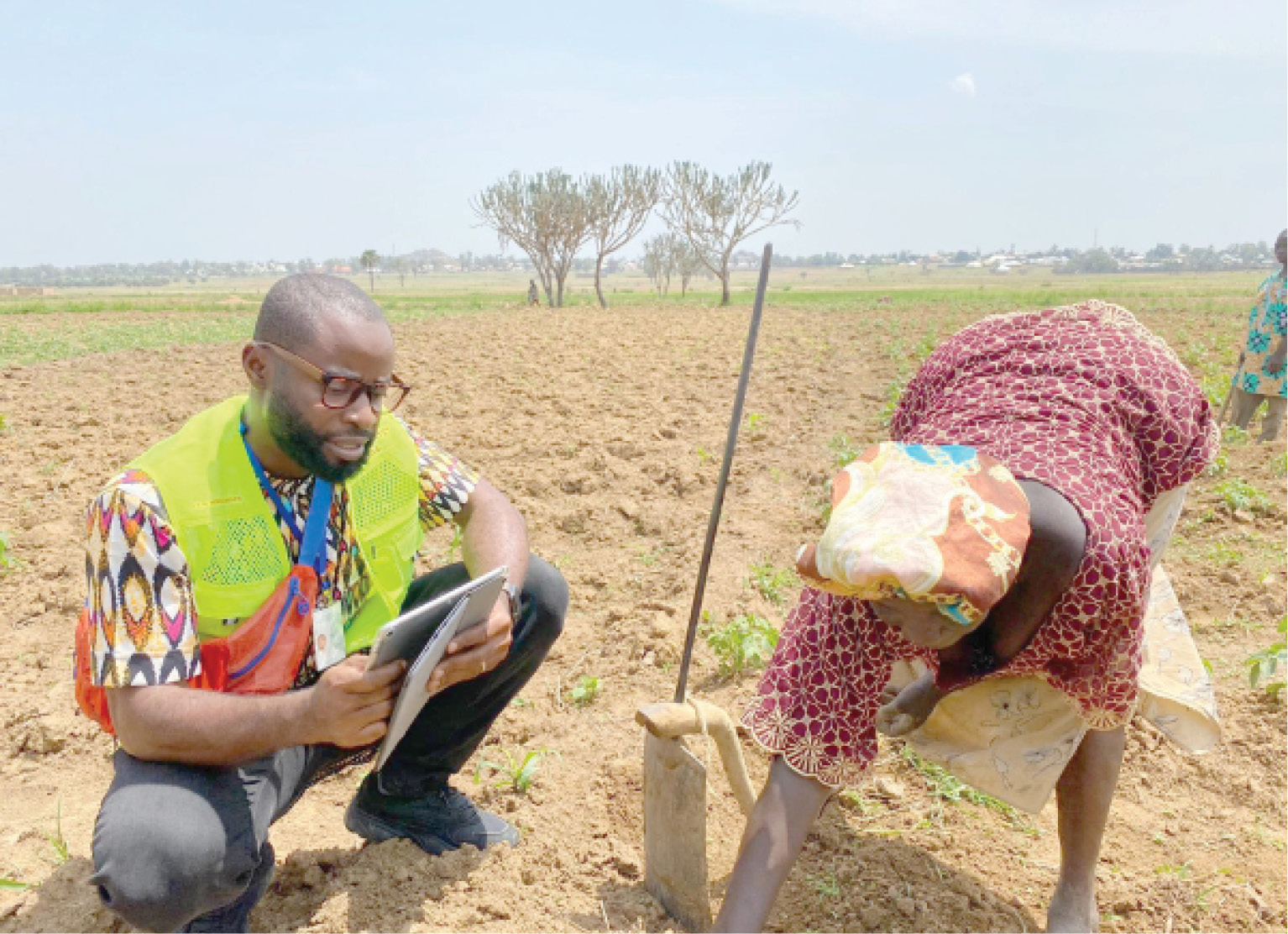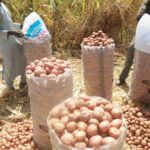Despite the viability of potato farming in nine local government areas of Plateau State, farmers often encounter serious storage challenges after harvest, leading to losses worth millions of naira.
Farmers say lack of storage facilities for the produce usually discourages them from investing much on Irish farming.
- Family members of murdered ISIS fighters repatriated to Abuja
- PODCAST: IDP Camps: A Ticking Time Bomb
According to the Potato Value Chain Support Project of the African Development Bank (AfDB) initiative, Plateau produces about 90 per cent of potatoes in Nigeria, with countries like Chad, Ghana, Niger, Benin, among others, receiving large supplies of the produce.
But the farmers said that even with the successes recorded so far in potato cultivation, inadequate depositories was one of the major problems they faced, which lowered mass production.
A research conducted by Okonkwo et al revealed that over 40 per cent of the stored potato seeds were lost within three months as a result of poor storage condition, adding that table potatoes are rarely stored; rather, they are sold immediately after harvest at poor prices to avoid loss of capital.
However, to solve some of these challenges, recently, the Itech Energy, Plateau State Potato Value Chain Support Project and the State Potato Value Cooperative Society signed a memorandum of understanding known as Jos Potato Project (JPP) to boost potato farming, a development the famers said would undoubtedly increase production in the state.
Dangana Gyang, the chairman of the cooperative society, which comprises all potato farmers in the state, said the initiative was the first of its kind in the history of potato cultivation in the state, and farmers would now have the opportunity to engage more in it.
According to Gyang, “There are many ways the JPP would improve our potato farming; improved seed would be made available. There would be new planting system. Our crops will no longer be sold at give-away prices because we will have a facility to store our crops safely, and by so doing, the potatoes will be sold at good price any time the farmer wishes.”
He also said, “There will be more income as the cost of farming inputs, such as fertilizer appliers, harvester, rotary pumps and other agricultural equipment would be reduced because they will be sold to us at company’s price. If we want to buy the input as groups, the purchasing power will be increased and there would be room for negotiation for the price, and this would go a long way to encourage us expand our farms.
“The farmers will also be educated on many aspects of agriculture. Again, in the value chain, the produce would be processed into different crops, such as flower and potato peel. This will increase potato consumption and utilization, which will open door for employment and business,” he added.
Why JPP was initiated
Eedee Saro Goneh, the chief executive officer of Energy, one of the collaborators of the JPP, said the initiative was a deliberate intervention aimed at preventing post-harvest losses and strengthen the state’s data-driven agriculture ecosystem to empower farmers with tech-focused solutions.
He said, “The collaboration is to help the farmers improve their means of livelihoods, having realised how farmers lose a lot of resources in the business. It is about building a sustainable circular economy for Plateau farmers. We intend to achieve this holistically, using available renewable energy services at our disposal for the project, where we will provide mini dams and storage facilities powered by solar, as well as provide information about whether.
“You cannot provide potato using carbon because if you continue to do that you are equally eating carbon. So we want to build a win-win ecosystem, where Plateau farmers would be safe and make profits,” he said.
Farmers await new storage facilities
The chief executive officer of Itech Energy said a new storage facility that would protect harvested potatoes for six months was underway for farmers.
He said, “With these modern storage facilities, the life of the potatoes would be protected by six months. This would help to prevent post-harvest loss, heal and give it a proper condition and ensure quality product. The storage facilities will come with software and hardware parts that would help to preserve the produce for better use.
Mr Goneh further explained that the storage facilities would have been built if not for the emergence of coronavirus last year, hoping that before the end of the year, the facilities would be ready.
However, Mrs Victoria Dung Pam, a farmer in Riyom Local Government Area, who enrolled in the programme, said it would go a long way in improving potato farming in the state, adding that their produce would no longer be wasted.
On his part, Mr Thomas Muopshin, the state coordinator of the Plateau Potato Value Chain, said the programme was a good development that would be beneficial to farmers and the state in general.

 Join Daily Trust WhatsApp Community For Quick Access To News and Happenings Around You.
Join Daily Trust WhatsApp Community For Quick Access To News and Happenings Around You.